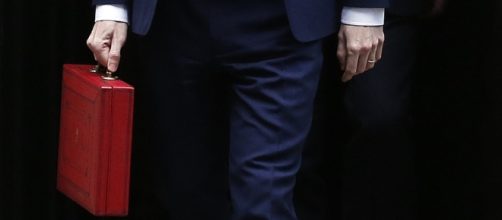Chancellor of the Exchequer, Phillip Hammond, published his first budget statement, claiming it was the budget for the majority. However, the detail suggests otherwise with corporate tax cuts and further public service cuts. But one notable absence is further funding in renewables, in fact, there is little mention of Energy funding.
Nonetheless there are a few mentions of energy that are of a concern to the future of UK energy. Including various taxes to transport with little mention of future investment.
Spring Budget energy policies
Several transport taxes have been announced; Vehicle Excise Duty (VED) means cars, vans and motorcycles registered before April 2017 will see an increase in VED rates by Retail Prices Index (RPI).
HGV VED and Road User Levy will be frozen this April with the government calling for evidence to update the existing levy, with the government claiming they will work haulages that plan their routes efficiently, rewarding them and incentivising the efficient use of roads to improve air quality.
The government will publish evidence for the use of red diesel, Air Passenger Duty (APD) will brought in line with the current RPI rate for 2018/19, with rates for 2019/20 to be announced in the Autumn Budget 2017.
Carbon pricing is vital for reducing the UKs carbon footprint and important to for our ability to decarbonise the energy sector. The government reiterated their ‘commitment’ to carbon pricing.
But the budget only mentions that they will provide further clarity of their plans to target an overall carbon price and a specific tax rate in the Autumn Budget 2017.
The Levy Control Framework shows that the government understands that business and households must be limited to the costs of decarbonising the UKs energy supply. A tax for late-life oil and gas assets is to be researched and the government will publish formal discussions, with an expert panel touted to be put together to scrutinise options.
Both the Aggregates Levy and Landfill Tax will be frozen for 2017/18, the former was introduced in 2009 and has been frozen each year since. The budget also states that the government will legislate to set new statutory packaging recycling targets, increasing them to 75.4% and for recovery to 82% by 2020.
Devil is in the detail
If you read the detail further it also confirms the government’s plans to scrap the Carbon Reduction Commitment (CRC) that was announced in 2016, and to cut funding to the Department of Business, Energy and Industrial Strategy (BEIS) and Department of Environment, Food and Rural Affairs. This further highlights the government’s inability to think progressively in regards to energy.
Cutting the departments that set policy on the UK’s energy needs and our ability to tackle issues such as climate change, is detrimental to the UK economy and environment. The current government is regressive in nature and lack a real insight into modern issues, with energy needs changing the budget doesn’t account for those requirements.

